JOIN US! TMS Education Event - Tuesday, April 9th 5:30pm pst - Click to learn more!
Navigating the Benefits of TMS Treatment for ADHD Management

What Are the Symptoms of ADHD?
ADHD is a type of neurodevelopmental disorder marked by hyperactivity and impulsivity. If you have serious trouble focusing at work and find yourself regularly forgetting appointments or falling behind on tasks, you might have ADHD.
ADHD symptoms are a little different in adults than in children. Children with ADHD are often very hyperactive and demonstrate an inability to sit still. They may also speak out of turn at school and put off assignments simply because they’re too bored to concentrate.
Adults with ADHD, on the other hand, tend to be more forgetful and “scatterbrained.” Adult ADHD symptoms may include:
- Frequently losing things
- Forgetting deadlines and appointments
- Starting a new task without finishing the previous one
- Starting a new hobby, then quickly losing interest
- Poor attention to detail
- Making frequent mistakes at work
Many people treat ADHD with a combination of cognitive behavioral therapy and medication management. Although medication can be very effective, it’s not the best choice for everyone with ADHD.
Stimulants Aren’t the Answer for Everyone
Doctors commonly prescribe stimulants, such as Adderall and Ritalin, to people with ADHD. These drugs increase chemicals (neurotransmitters) called dopamine and norepinephrine in your brain, enhancing your ability to pay attention and focus on tasks.
The trouble is that ADHD drugs don’t work for everyone. You may have to go through several medications to find one that produces the desired effects. On top of that, these medications can have unpleasant side effects, such as:
- Trouble sleeping. ADHD medications affect the same part of the brain that induces sleep. Some people have trouble falling and staying asleep. You’ll struggle to perform at work or school if you sleep poorly.
- Loss of appetite. Some ADHD medications reduce appetite, and if you’re not eating properly, you could lose too much weight. Poor nutrition may also cause vitamin deficiencies that could make you sick.
- Irritability. ADHD drugs can make you feel cranky, causing you to snap at loved ones and coworkers.
ADHD medications can also cause challenges for parents of children with ADHD. Some parents disagree on whether their children should take stimulants, and some children simply refuse to take their medication. An alternative treatment, such as TMS, addresses both challenges.
Lately, a shortage in stimulant medications has developed in the U.S. The reasons for the shortage are unclear, but it may have something to do with the recent surge of ADHD diagnoses. Doctors are diagnosing more people with ADHD than ever, thus putting increased demand on the medication supply chain.
TMS doesn’t rely on the fickle supply chain, which means ADHD patients can get help without interruption to their treatment plan.
What Is Transcranial Magnetic Stimulation for ADHD?
Transcranial magnetic stimulation, or TMS, is an alternative to ADHD medications. It’s a non-invasive deep brain stimulation technique that uses electromagnetic fields to stimulate the dorsolateral prefrontal cortex of your brain. These electric pulses affect neurotransmitter production and target the same areas of the brain that ADHD drugs do without the upsetting side effects.
Types of TMS Treatment for ADHD
Several types of TMS treatment are available, and we’ll go over each in more detail next.
Repetitive TMS (rTMS)
Repetitive transcranial magnetic stimulation (rTMS) was the first type of TMS treatment available for ADHD. A provider places a device directly on the patient’s skull during the procedure. This device contains a wire coil that generates a repetitive magnetic pulse, hence the name.
The treatment works well but can require up to 30 sessions over six weeks. Some patients may not be able to commit to such an intensive regimen.
Deep TMS (dTMS)
With dTMS, a provider places a helmet containing electric coils on the patient’s head. These coils can penetrate more deeply into the brain, making this treatment more effective than rTMS.
Accelerated TMS
Accelerated TMS is the newest and most effective TMS treatment available. Based on the renowned Stanford Accelerated Intelligent Neuromodulation Therapy (SAINT) protocol, accelerated TMS can treat ADHD patients in just five days rather than six weeks.
There are two main accelerated TMS treatment methods. The first uses multiple daily intermittent theta burst stimulation (iTBS) sessions.
A 2010 study showed that 20 sessions delivered over eight days resulted in a 50% reduction of depressive symptoms in five out of nine patients. Although this study didn’t examine the results of the treatment among ADHD patients, it shows just how powerfully effective accelerated TMS can be.
The second method uses standard rTMS but increases the number of sessions to several per day. This method has proven highly effective. In a 2018 study, researchers compared a standard rTMS protocol with an accelerated version (three daily treatments over three days during the first week, three cumulative treatments over two days during the second week, and two or three treatments on one day during the final week). The results showed that the accelerated protocol delivered the same outcome as a standard rTMS treatment in less time.
What Other Conditions Can TMS Treat?
ADHD isn’t the only condition that TMS treats. The U.S. Food and Drug Administration (FDA) has cleared TMS as a treatment for major depressive disorder, including treatment-resistant depression. That’s good news because many people with ADHD have depression as well.
The FDA has also approved TMS as a treatment for smoking cessation, migraines, and obsessive-compulsive disorder (OCD). Researchers are currently studying whether TMS is effective for treating other conditions, including:
- Eating disorders
- Post-traumatic stress disorder
- Tinnitus
- Parkinson’s disease
- Fibromyalgia
- Chronic pain
- Addictions
- Borderline personality disorder (BPD)
- Bipolar disorder
- Schizophrenia
- Alzheimer’s disease
- Traumatic brain injury
- Stroke complications
In short, if you have any of the above conditions, you may feel better by committing to an accelerated TMS treatment plan.
Is TMS Safe?
Accelerated TMS is a non-invasive procedure that doesn’t require surgery or rely on drugs, so side effects are minimal. There’s no risk of memory loss as there might be with electroconvulsive therapy (ECT).
Some patients report a mild headache, facial twitching, scalp discomfort, and lightheadedness. However, these symptoms usually disappear after the body acclimates to the treatment.
For the vast majority of people, TMS presents no safety risk. In a 2012 study, researchers gave one real TMS treatment to a group of adolescents and a placebo treatment to another group. They concluded that TMS was “safe, with no serious adverse effects.”
What Does the Science Say?
TMS is safe, but does it work? Science says yes.
In one 2020 study, researchers randomly gave 43 adults with ADHD a real, active control, or placebo TMS treatment. Participants underwent three weeks of daily treatments. Researchers found that TMS resulted in a “significant improvement of symptoms.”
TMS isn’t just a potential ADHD treatment for adults. Researchers have studied whether the treatment might be effective for adolescents as well.
A review of TMS for childhood ADHD found that TMS can induce helpful, long-lasting changes in children and may be particularly effective in children with treatment-resistant ADHD. Additionally, TMS was highlighted as a valuable treatment for adolescents and adults in a 2021 study published in the journal Psychiatrist.
Is Accelerated TMS Right for You?
Most patients tolerate TMS very well. If your ADHD medication isn’t working or you don’t like the way it makes you feel, you may be a good candidate for TMS.
That said, TMS isn’t necessarily right for everyone. People in the following categories should not try TMS:
- People who have had a seizure or are at risk of having seizures
- People who have implanted electronic devices in their bodies
- People who have implanted magnetic plates in or around their heads
If you fall into any of the following groups, talk to a TMS provider to find out whether this treatment is safe for you:
- People who are pregnant or nursing
- People who have stents, pacemakers, cochlear implants, or implantable defibrillators
- People with psychoses where a rapid clinical response would be needed
- People who have attempted suicide or have a plan to commit suicide
- People with a history of substance abuse
- People who have suffered severe head trauma
- People with epilepsy, dementia, increased intracranial pressure, or cerebrovascular disease
How To Start Accelerated TMS for ADHD
If you’re interested in trying accelerated TMS for ADHD, here’s what to expect.
- First, you’ll need to confirm that you have ADHD. Many conditions have symptoms that can mimic ADHD. If you haven’t been diagnosed with ADHD, the treatment may not be effective for you.
- Choose an accelerated TMS provider. Kind Health TMS is a trusted TMS provider that deeply cares for its patients. We provide compassionate, one-on-one care and treatment that delivers highly effective results.
- Our providers will help you navigate the TMS process. You’ll learn how the treatment works, how long you’ll need to receive TMS, and when to expect results.
- If we decide TMS is a good fit for you, we’ll begin treatment. During this process, you’ll work with an experienced health coach who helps you manage your ADHD through proper sleep, exercise, stress management, and a healthy diet. We may suggest cognitive behavioral therapy as well.
Why Kind Health TMS?
When you choose us for TMS, you’ll get:
- Condensed TMS that takes just five days instead of the standard 40
- Treatment from a multidisciplinary team that includes world-renowned TMS experts
- Access to dedicated health coaches who deeply care about your well-being
- Comprehensive follow-up during treatment and beyond
- An actionable plan that teaches you how to make healthy lifestyle changes
- Oura Ring monitoring for real-time insights into your health
- Personalized and compassionate care
Make your appointment for accelerated TMS and start on the path to recovery today.
We Offer Medication-Free Treatment for ADHD
If you’re struggling with ADHD symptoms and are seeking a drug-free treatment option, there is light at the end of the tunnel. Kind Health TMS offers effective TMS for ADHD that can help you feel like yourself again. You’ll get expert clinical support during treatment, and our health coaches will walk alongside you every step of the way.
Take our free quiz to determine whether you’re a candidate for TMS, or call
(760) 840-5358 to speak with our TMS providers now.

Meet the Author
Dr. Georgine Nanos, MD, MPH
Founder of Kind Health Group

